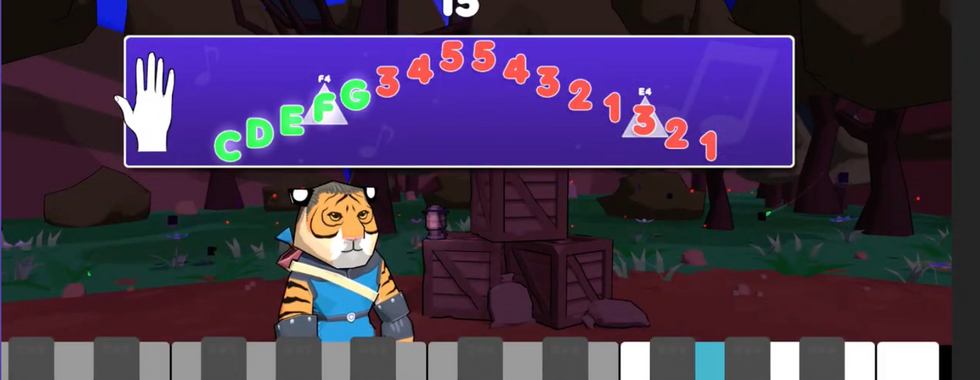The Moment I Almost Gave Up on Music–And Why I Built a New Way to Learn
- SoundTree
- Mar 24
- 3 min read
Updated: Mar 28
Graeme Winder Founder and Creator of Keys & Kingdoms

When I was a kid, music was everything to me. As the child of two immigrants, I grew up in an apartment building in Colorado Springs. One day, a neighbor who was moving asked if we wanted their small upright piano. We said yes, and they rolled it right down the hallway into our tiny apartment. That piano changed my life.
From the moment my fingers touched the keys, I was hooked. My mom found a local church organist to teach me, and I eagerly started lessons. But there was a problem—I wasn’t a good reader. Not just with books, but with music too. I didn’t process things visually the way other kids did, but I could play anything I heard. So at five years old, I developed my own system. At the end of each lesson, I’d ask my teacher to play the new piece for me. As soon as she left, I’d rush to the piano and pick it out by ear. For the next eight years, I relied on this strategy.
Then, when I was thirteen, everything changed. One day, my teacher caught me looking at the wrong page while I played. She stopped me and said, “Start here, in the middle of the song.” I couldn’t do it. She looked at me for a long moment and then said something that rocked me to my core: “You can’t read, can you?”
I admitted that I couldn’t—not very well. Then she said the words that nearly ended my love for music: “You probably shouldn’t be in music anymore.”
At thirteen, I felt like my world had collapsed. How could something I loved so much not love me back? Was I really not meant for music just because I learned differently?

That moment stayed with me. And over time, I realized something: I wasn’t alone. Many kids struggle with traditional, notation-based music education. Some are auditory learners, like I was. Others need movement, creativity, or interactive experiences to fully engage. But for so long, music education has focused on a one-size-fits-all approach—reading music first, creativity later.
This is why multi-modal learning is so important. Students learn in different ways, and we, as educators, have to meet them where they are. Technology allows us to do this better than ever.
A teacher recently reminded me of this when he shared a story about a young girl in his class. She never engaged in music—she sat quietly in the corner, head down, disconnected. Then one day, he put Keys & Kingdoms in front of her, placed headphones on her ears, and told her to play. Over the next few weeks, everything changed. She became immersed in the music, her playing improved rapidly, and by the end of the semester, she performed a song from the program live in front of her classmates. It wasn’t just her musical ability that transformed—it was her confidence, her connection to music, and the way she carried herself.
That’s exactly why I created Keys & Kingdoms—to give students like her, and like me, a different way into music. A powerful gateway into self-expression and creativity through music. Instead of forcing notation from day one, it nurtures the ear, encourages improvisation, and builds confidence. It’s the kind of tool I wish I had as a kid—the kind that would have told me, You belong in music.

Graeme Winder
2x Founder & CEO. Music Educator & Creator of SRM Method.
https://keysandkingdoms.com/
Contact Graeme graeme@team.keysandkingdoms.com (949) 395-6174

















Comments